D-BSSE News
Over 400 different types of nerve cell have been grown – far more than ever before
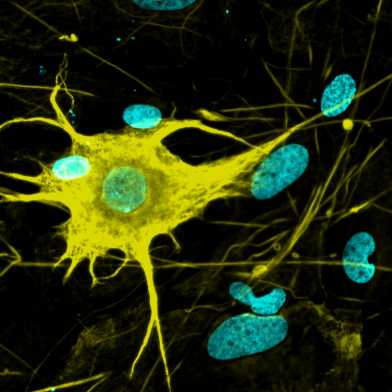
For the first time, D-BSSE researchers from the Treutlein group have successfully produced hundreds of different types of nerve cell from human stem cells in Petri dishes. In the future, it will thus be possible to investigate neurological disorders using cell cultures instead of animal testing.
Gold certificate confirms sustainable construction
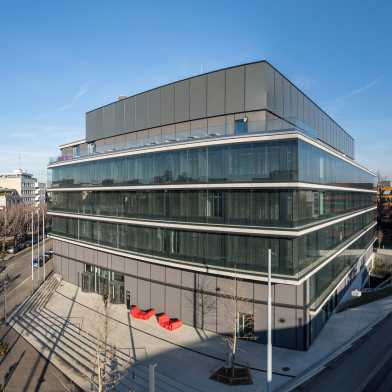
The latest construction projects at ETH Zurich consistently meet high sustainability standards. For example, the BSS in Basel recently became the first laboratory building in Switzerland to receive the DGNB Gold certificate.
Long-term live imaging sheds light on human brain development
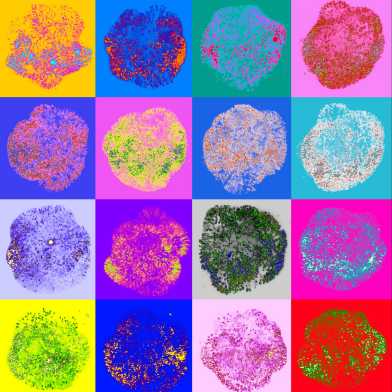
Scientists led by Barbara Treutlein have developed a powerful new way to watch how tiny lab-grown human brain models - called brain organoids - form and grow over time. Using advanced light sheet microscopy and fluorescent markers, researchers tracked individual cells and their structures over several weeks, revealing in unprecedented detail how the early brain shapes itself. A key finding is the importance of the extracellular matrix, helping the organoids grow more organised brain regions.
ERC Grant for advancing the design of genetic controllers

Mustafa Khammash, head of the Control Theory and Systems Biology lab, receives an ERC Advanced Grant for advancing genetic control circuits in immune cells that may be used in treating rheumatoid arthritis. This is the third Advanced Grant Mustafa is receiving, congratulations!
Assessing genetic heterogeneity in circulating tumour cells to improve treatments
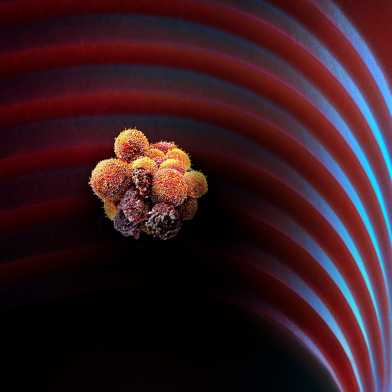
Researchers around Niko Beerenwinkel, head of the Computational Biology group, in collaboration with the group of Nicola Aceto from the ETH-Department of Biology, are studying genetic heterogeneity in clusters of cancer cells travelling through the blood to seed new tumours in the body. Their study in Nature Genetics characterises the composition of these circulating tumour cell clusters in liquid biopsies which may eventually replace traditional tissue biopsies in the medical practice.
Study demonstrates benefits of molecular tumour analysis
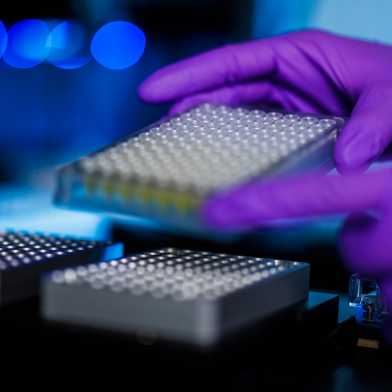
Every tumour is unique. This makes it difficult to find the most effective therapy for treatment. Researchers in Zurich and Basel are now showing how state-of-the-art molecular biological technologies can be used to create a detailed tumour profile within four weeks, enabling tailored treatment. The study is the first of its kind in the world.
Congratulations to our 2024 Graduates!
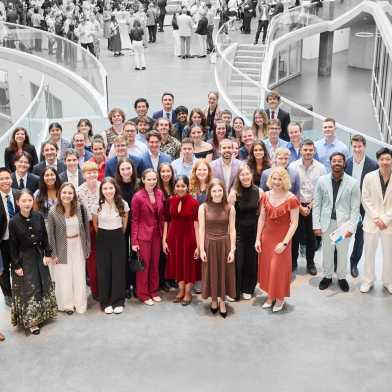
On 23 May, 24 Biotechnology and 27 Computational Biology & Bioinformatics graduates attended the D-BSSE graduation ceremony together with their families and friends, in total some 180 guests. We are especially pleased to have two ETH medallists and three Willi Studer Prize awardees this year. Huge congratulations to all our graduates and best of success for a bright future!
ETH Medal for excellent research: cell-cell interactions | CRISPR screening technology
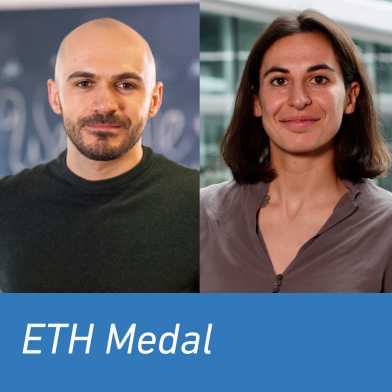
Costanza Borrelli who studied cell-cell interactions during her doctorate in the Moor Lab, and Antonio Jose da Silva Santinha from the Platt Lab, inventor of a novel technology for single-cell CRISPR screening, received the 2024 ETH Medals for their doctoral theses. Big congratulations!
Mapping the future of organoids
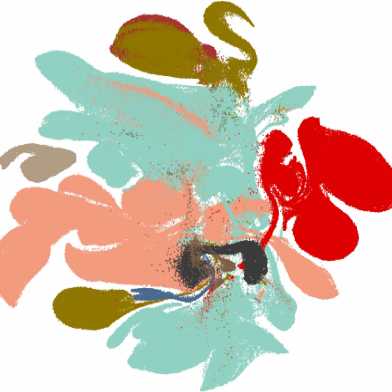
Scientists from Roche's Institute of Human Biology, their partners at ETH Zurich and Helmholtz Munich, and collaborators have built detailed atlases of brain, gut, and lung organoids to empower future discovery.
Welcoming the public to a fascinating journey into the microscopic and nanoscopic worlds
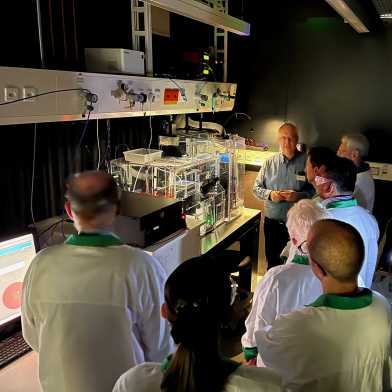
On 6 May, the Single Cell and Lab Automation Facilities opened their doors to learn about the secrets of life. After a short introduction by Thomas Horn, Head of the facilities, on how tiny details in cells are visualised using state-of-the-art laser microscopes, the visitors to the fully booked tour saw some of the top-notch instruments and gained stunning insights to microscopy and lab robotics.